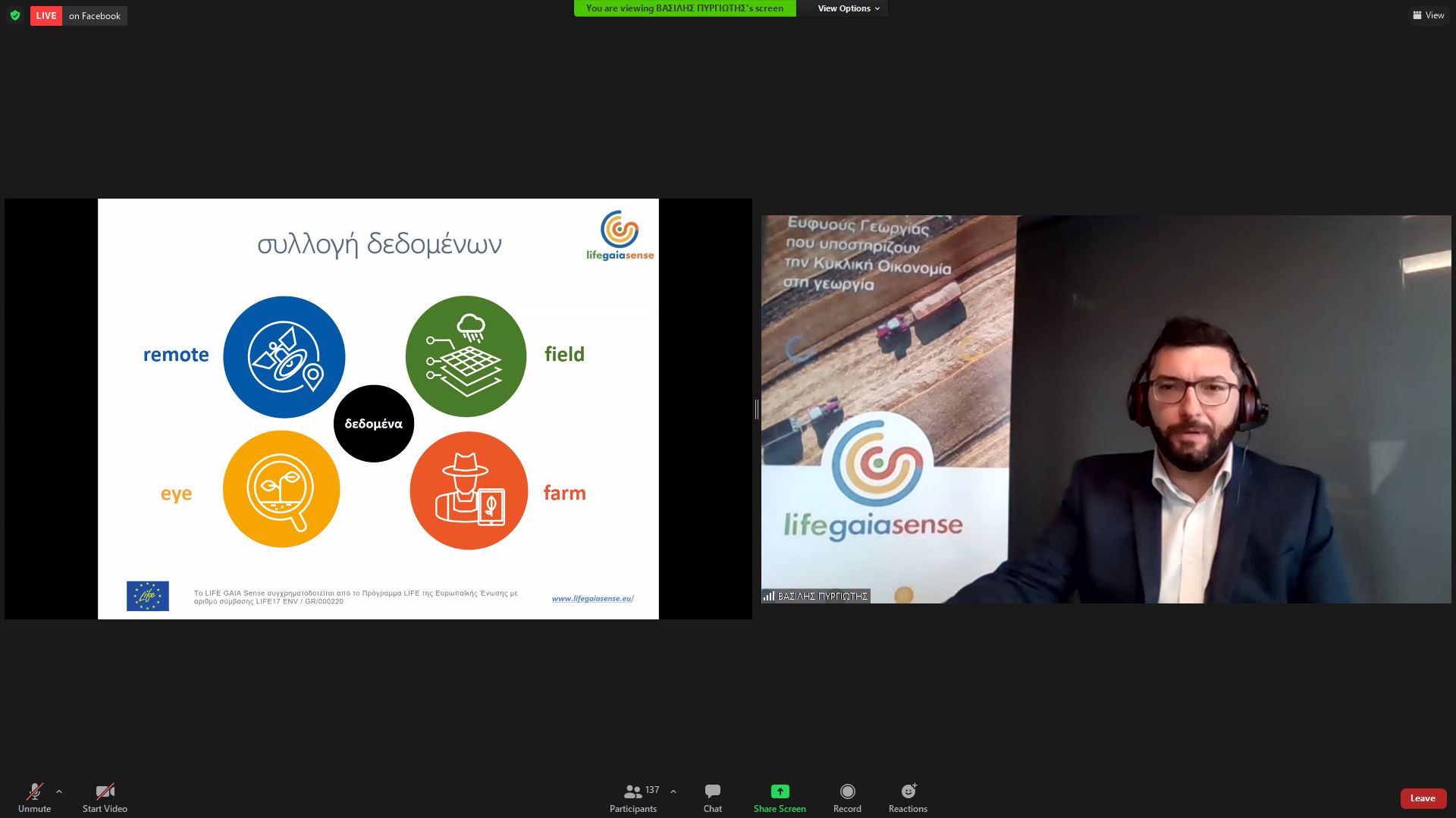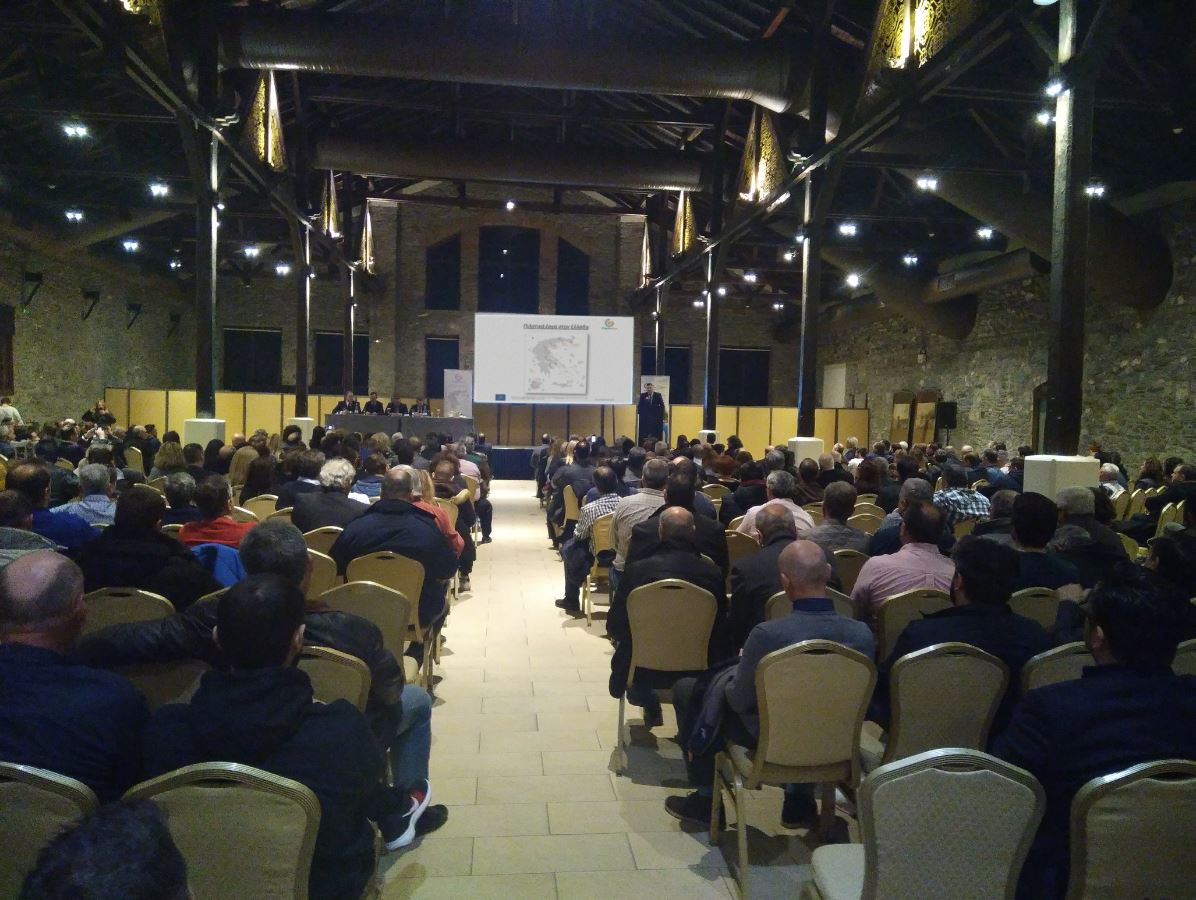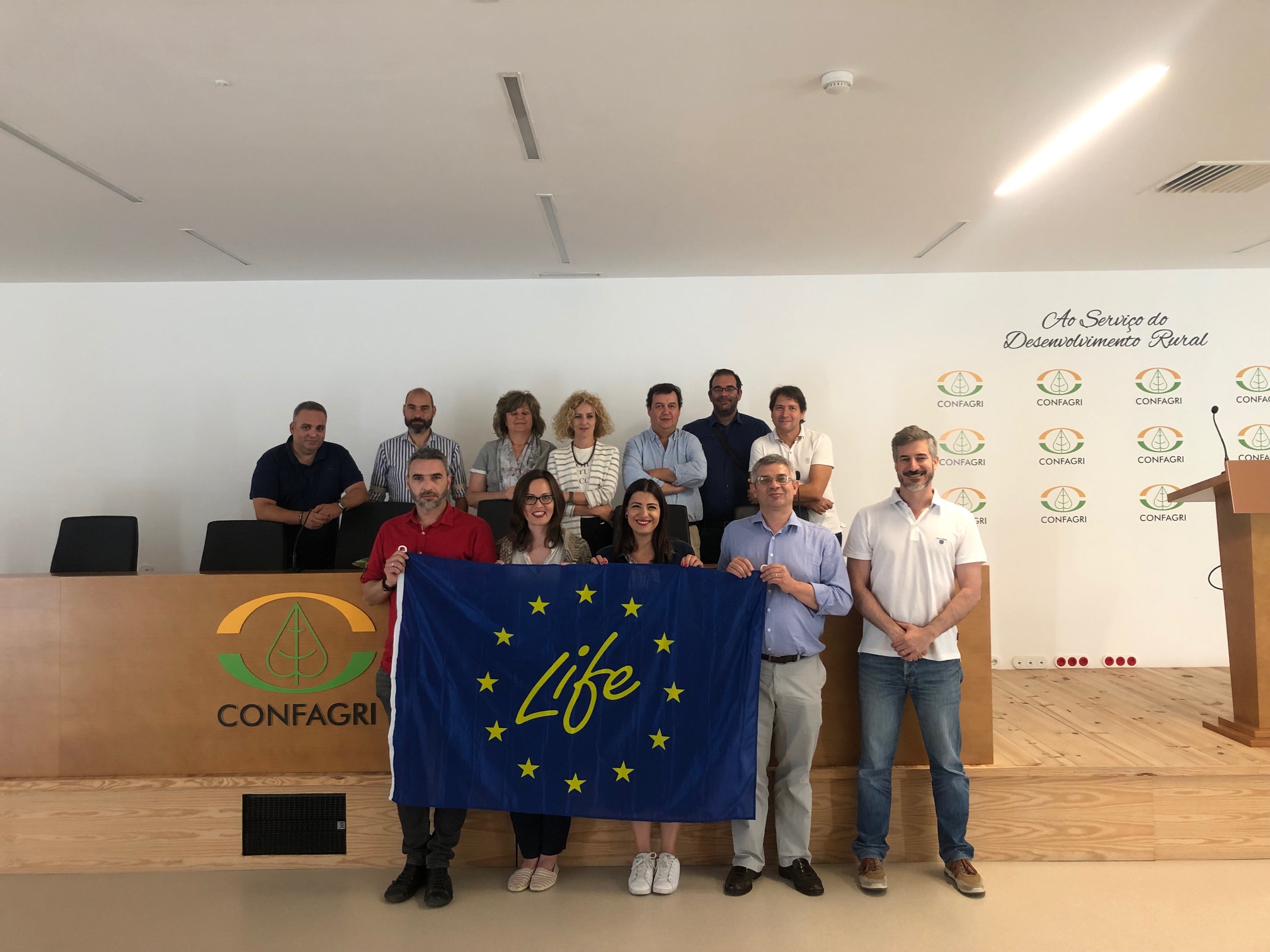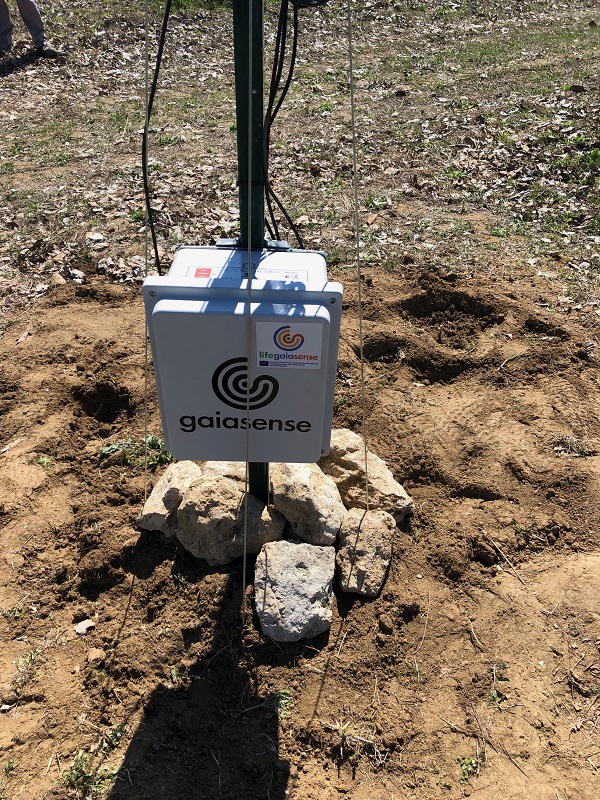October 2019 - LIFE GAIA Sense
Α) Identity of the project
| Title/ N° |
Innovative Smart Farming services supporting Circular Economy in Agriculture |
| Duration |
01/07/2018 – 30/06/2022 |
| Budget |
€2.979.291 |
|
Beneficiaries |
Coordinating Beneficiary: NEUROPUBLIC S.A. PLIROFORIKIS & EPIKOINONION Associated Beneficiaries:
|
| Location of activities |
|
| Website | |
| Contact |
Vasilis Pyrgiotis, Head of EU Projects Department, NEUROPUBLIC, E: This email address is being protected from spambots. You need JavaScript enabled to view it. |
Description/Aim
The main aim of the LIFE GΑΙΑ Sense project is to demonstrate the applicability of gaiasense, an innovative “Smart Farming” (SF) solution that aims at reducing the consumption of natural resources, as a viable mean for the protection of the environment and the support of Circular Economy (CE) models.
More specifically, in the context of the project 18 demonstrators across Greece, Spain and Portugal covering 9 crops (olives, peaches, cotton, pistachio, potatoes, table tomatoes, industrial tomatoes, grapes, kiwi, walnut) under different terrain and microclimatic conditions will be launched. During the demonstrator pilots, the efficiency of the gaiasense as an innovative method based on high-end technology, suitable for replication, accessible to and affordable by farmers either as individuals or collectively through Agricultural Cooperatives will be assessed.
Moreover, LIFE GAIA Sense seeks to promote resource efficiency practices in SMEs of the agricultural sector and eventually, contribute to the implementation of the Roadmap to a Resource Efficient Europe. This project will demonstrate a method on the optimisation of the farmers decision making on the use or avoidance of certain inputs (irrigation, fertilizers, pesticides etc.), without risking the annual production. The potential of the reduced consumption of resources aspect of CE will be estimated, based both on qualitative and quantitative assessments that also taking into account the resources’ efficiency in agricultural sector.
Β) Best Practices
For the dissemination of information towards the general audience, the LIFE GAIA Sense project makes use of all available means, such as the project website, social media, newsletters, printed material, participation in related conferences, workshops and other events, in order to ensure the maximum reach of the project’s messages. Synergies with related projects and organizations also contribute to this effort, where applicable.
Through our messages, we encourage the adoption of environmentally friendly farming practices, such as the reduced use of inputs, the optimized use of natural resources etc.
Stakeholder meetings play a key role in the dissemination of the project’s messages, as they allow us to have a more direct and focused communication with them.
For example, in the 18 project pilot sites we organized workshops with presentations and discussions with the stakeholders (producers, agronomists, agricultural advisors etc.) highlighting the contribution of smart farming (in general) and the LIFE GAIA Sense project (in particular), in the reduction of production costs and the environmental sustainability in the context of circular economy.
The project’s success depends at a high degree in the information of its stakeholders regarding the benefits of the proposed approach, as they are not always familiar with the concept of smart farming and its benefits for producers, agricultural advisors, consumers as well as the environment.
The aforementioned informational and training activities in topics related to smart farming and awareness in aspects related to environmental conservation play a key role in this effort.
The target of these activities is to emphasize the benefits of the proposed approach, so that the participation and engagement of these stakeholders in the project’s activities.
The objective of the LIFE GAIA Sense project is to highlight the benefits of smart farming for the environment and contribute to circular economy models.
In the context of the project:
- Participating agricultural cooperatives will adopt environmentally-friendly farm management systems;
- Agricultural advisors will have a useful tool in their hands for providing better services to farmers and
- Policy makers will be able to make use of the project’s results and proposals in circular economy models.
In any case, the application of the project’s smart farming services will contribute to the mitigation of the environmental footprint of the crops.
C) Results
Up to now, the project exhibits a significant progress towards the achievement of the expected results:
- The smart farming technological infrastructure has been successfully installed in a high number of the project’s pilots in Greece, Portugal and Spain. For example, until now, about 43 telemetric stations have been installed in pilot sites and more will be installed in the following months.
- The environmental, financial and social indicators – targets have been defined for each crop and each area.
- The development of the specialized software for on-farm observations & measurements as well as the farm digital diary has been largely completed making use of state of the art technologies.
- The training on smart farming topics of selected staff from each organization participating in the pilots has been completed.
- The recording and collection of data required by the smart farming services of the project has started.
- The collaboration with academic institutions and organizations for the development and optimization of scientific models for irrigation, crop protection and fertilization has started.
- The implementation process for the scientific models related to the environmental contribution of the project has started.
By the end of the project, the following outcomes are expected:
- The provision of integrated irrigation, crop protection and fertilization advice for 9 crops and 18 different areas;
- The reduction of emissions by farming practices by 30%;
- The reduction of crop protection means by 11-25%, by avoiding unnecessary and untimely sprayings;
- Reduced use of irrigation water by 25%, thanks to the optimization of each irrigation cycle;
- The dissemination of the project’s results among at least 1.000 agricultural cooperatives and 500.000 farmers.
The project’s outcomes have multiple receivers and can be used by:
- Agricultural cooperatives and individual farmers, who are interested in reaping the benefits of smart farming reducing at the same time the environmental impact of their production;
- Agricultural advisors, who want to improve the services they offer to their customers, using the technological tools of the specific approach;
- Researchers, who want to apply in practice their research outcomes, focusing on the ones related to irrigation, fertilization and crop protection;
- Policy makers working on topics related to agriculture and the environment, who are interested in environmentally friendly production management systems.
The project results are available on the project website (www.lifegaiasense.eu) which is frequently updated, and more information you can always follow the project’s social media accounts on Facebook, Twitter and LinkedIn.
Last but not least, in the context of the dissemination and outreach activities of the project, project partners will participate in relevant Conferences, Workshops and other events of the agricultural sector in order to inform participants about the project and its actions.






